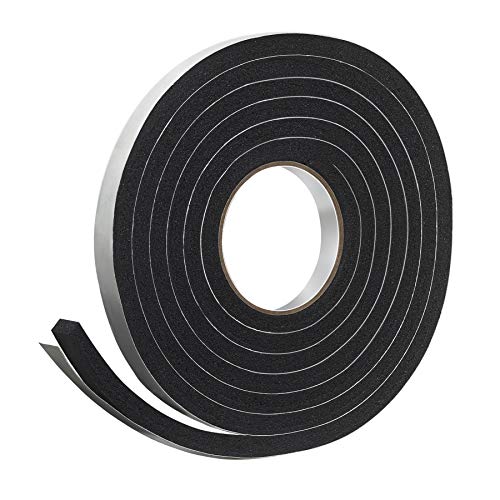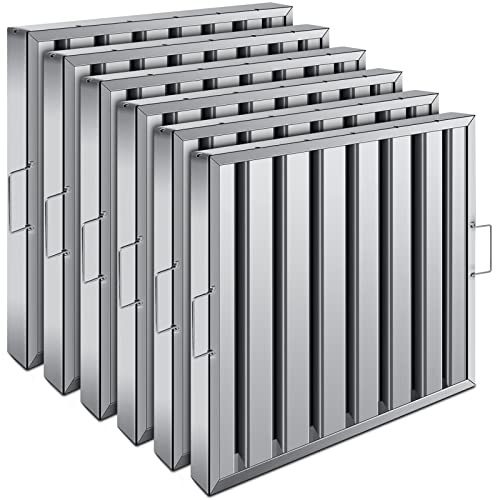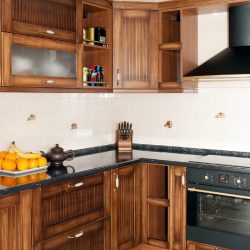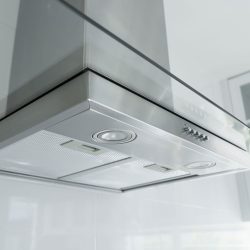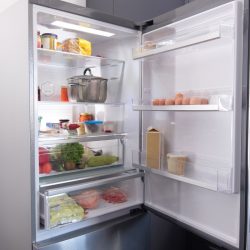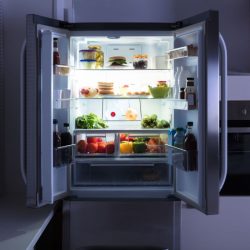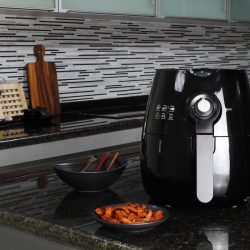If you're hearing your range hood make noises while it's off, it can be rather concerning. You might wonder what's going on and how to fix it. We've done our research on this topic to help you pinpoint the root of the issue and how to solve it, and here's what we found.
It's not normal for the range hood to make noise it's when turned off. It indicates an issue that needs to be solved as soon as possible. The most common causes for range hood noises include:
- Clogged or damaged filter
- Loose parts or power connectors
- Noise due to rain or wind
Keep reading as we take a closer look at each possible issue and give you effective troubleshooting solutions for them. We'll also discuss other possible causes of range hood noises during operation and answer more questions about problems with your range hood, so stay tuned!
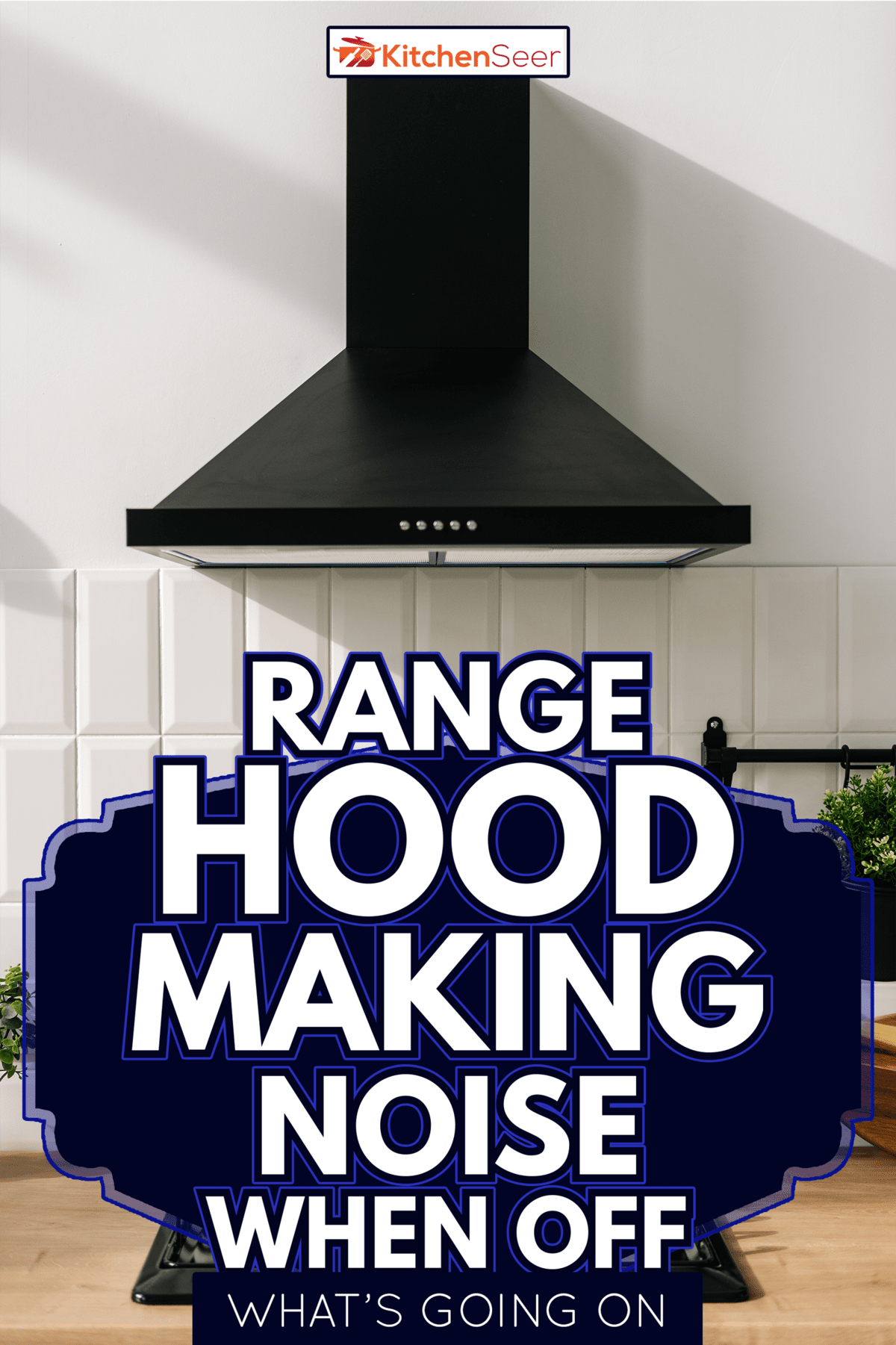
Possible Causes of Range Hood Making Noise When Off
Your range hood is responsible for removing odors, smoke, heat, grease, moisture, and air pollutants while cooking. It helps keep the indoor air in your kitchen safe and clean, creating a more pleasant and comfortable environment for you.
It's perfectly normal to expect your range hood to make at least a little noise while it's running. The amount of noise it makes depends on the model you have. However, you should definitely be alarmed if it starts making noise when it's not in operation.
Here are a few possible causes of your range hood making noise when it's off:
Clogged or damaged filter
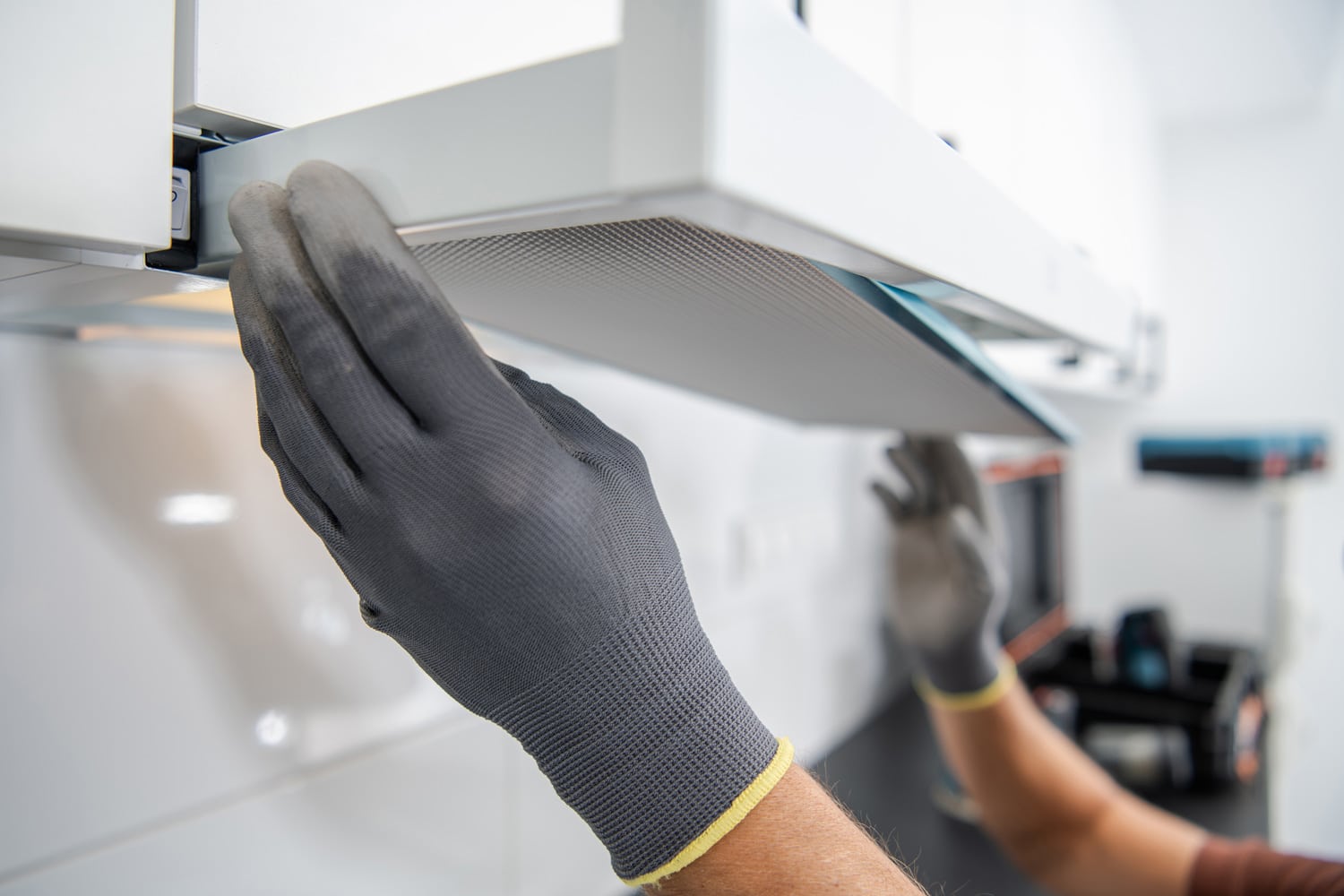
The filter on your range hood is designed to catch and trap grease and other particles to keep them from going into the vent. Over time, dirt and debris can build up on the filter and clog it up or damage it. This may cause the filter to make banging noises or move by itself.
Solution
If your filter is dirty or clogged, the simple solution is to clean it. Here are the steps to clean your range hood filter:
- Locate the filter and remove it.
- Fill your sink or tub with boiling hot water. You can also use a bucket for this step.
- Add dish soap or liquid soap into the water.
- Add 1/4-cup of baking soda into the water.
- Soak your filter in the mixture for 10 to 20 minutes.
- Use a scrub brush to scrub the filter.
- Rinse the filter.
- Dry the filter with a towel or a microfiber cloth.
However, if your filter is damaged, you may need to replace it. Here are the steps to change your range hood filter:
- Buy a filter compatible with your range hood.
- Locate the filter and remove it.
- Throw out the old filter.
- Put the new filter in and make sure it fits securely.
Check out this range hood filter replacement on Amazon.
Loose parts or power connectors
Poor installation and other issues may lead to certain parts of the range hood becoming loose, resulting in unusual noises coming from it.
These loose parts may include a loose non-return valve, impeller, screws on the filter or the blower, or power connectors.
Solution
Make sure to inspect your range hood and tighten any parts that may be loose.
The non-return valve is responsible for providing airflow in a single direction, preventing the air that your range hood has released from coming back in and recirculating.
If improperly installed or subject to constant use, the valve may produce noises. You can stop this noise by using an adhesive like blue tack to keep it from moving around and making sounds.
Check out the Blu-Tack by Bostik on Amazon.
If the valve is not the culprit causing the noise, then you can check the impeller to see whether it's to blame. This part is responsible for circulating air in the range hood, and it can make noises if its bolt is loose.
To resolve this issue, realign the impeller and tighten the bolt holding it in place.
Loose screws on the filter or blower may also result in unusual noises from the range hood. You can fix this by tightening the screws with a screwdriver.
Lastly, if loose power cords are causing the noise, you will need to reconnect or replace them.
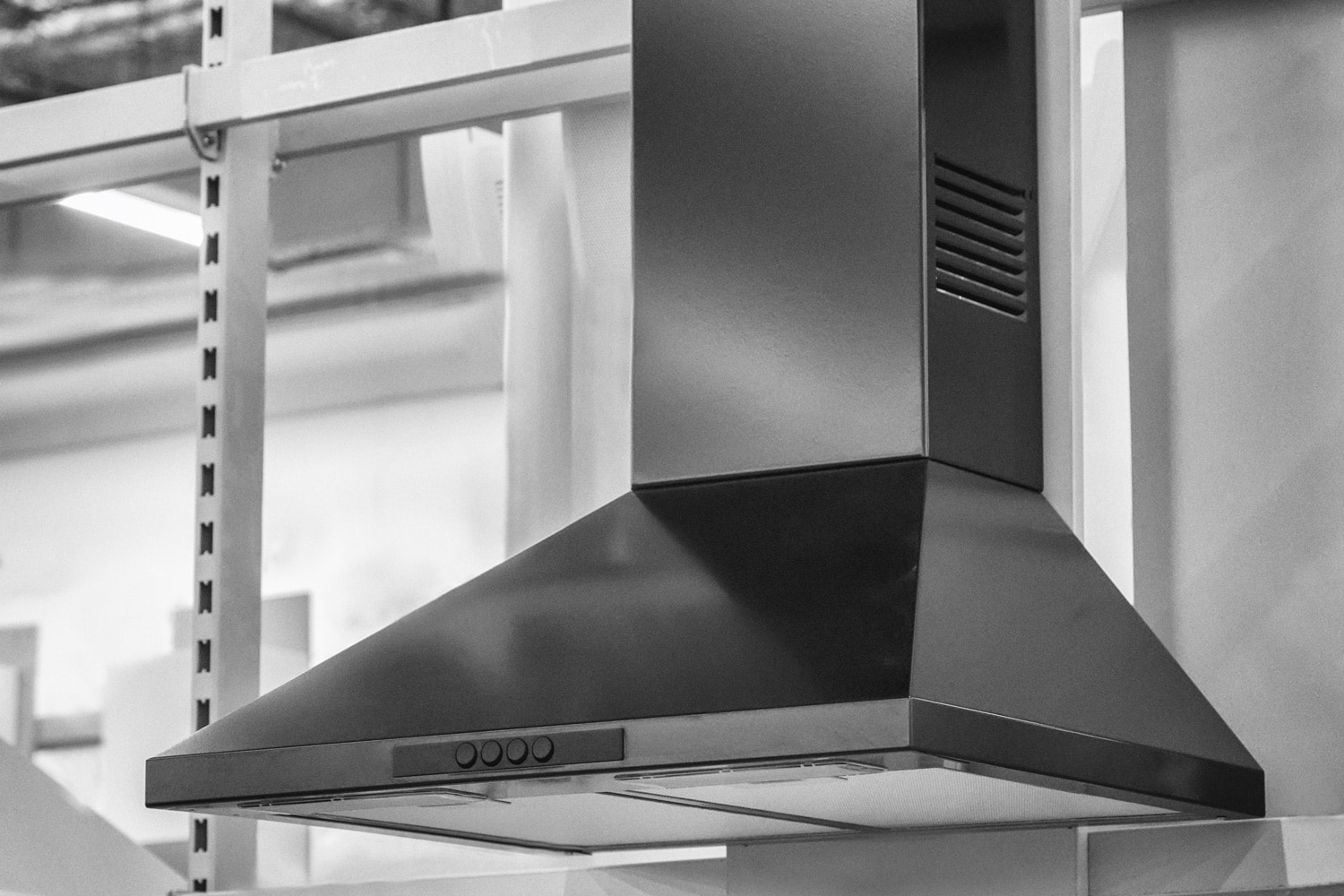
Noise due to rain or wind
Because your range hood has an outdoor vent, windy or rainy weather can affect it and even cause it to make strange sounds.
This vent comes with a backdraft damper that directs air toward the outside of your home. It also prevents leaves, debris, and pests from going into your ductwork and entering your residence.
When you experience strong winds, the backdraft damper flap is likely to move with the wind and make a loud banging sound. On the other hand, when it rains, the rain may enter the vent and create a dripping noise.
Solution
There are a couple of solutions to this problem. The easiest way to fix a noisy backdraft damper is by sticking foam to the flap with glue to keep it from moving around.
Check out this foam tape on Amazon.
Anything that inhibits the motion of the flap or weighs it down can also help. Rubber, cloth, or wheel weights are among your options for doing this.
The most permanent solution for this issue is to install a spring-loaded butterfly damper on your range hood. This will not only stop your range hood from making noises, but it will also prevent leaks.
As for the dripping noise when it rains, the best way to resolve this is by insulating the vent hood duct, although this will be expensive and time-consuming. For a cheaper and easier solution, you can choose to install a weather flap instead.
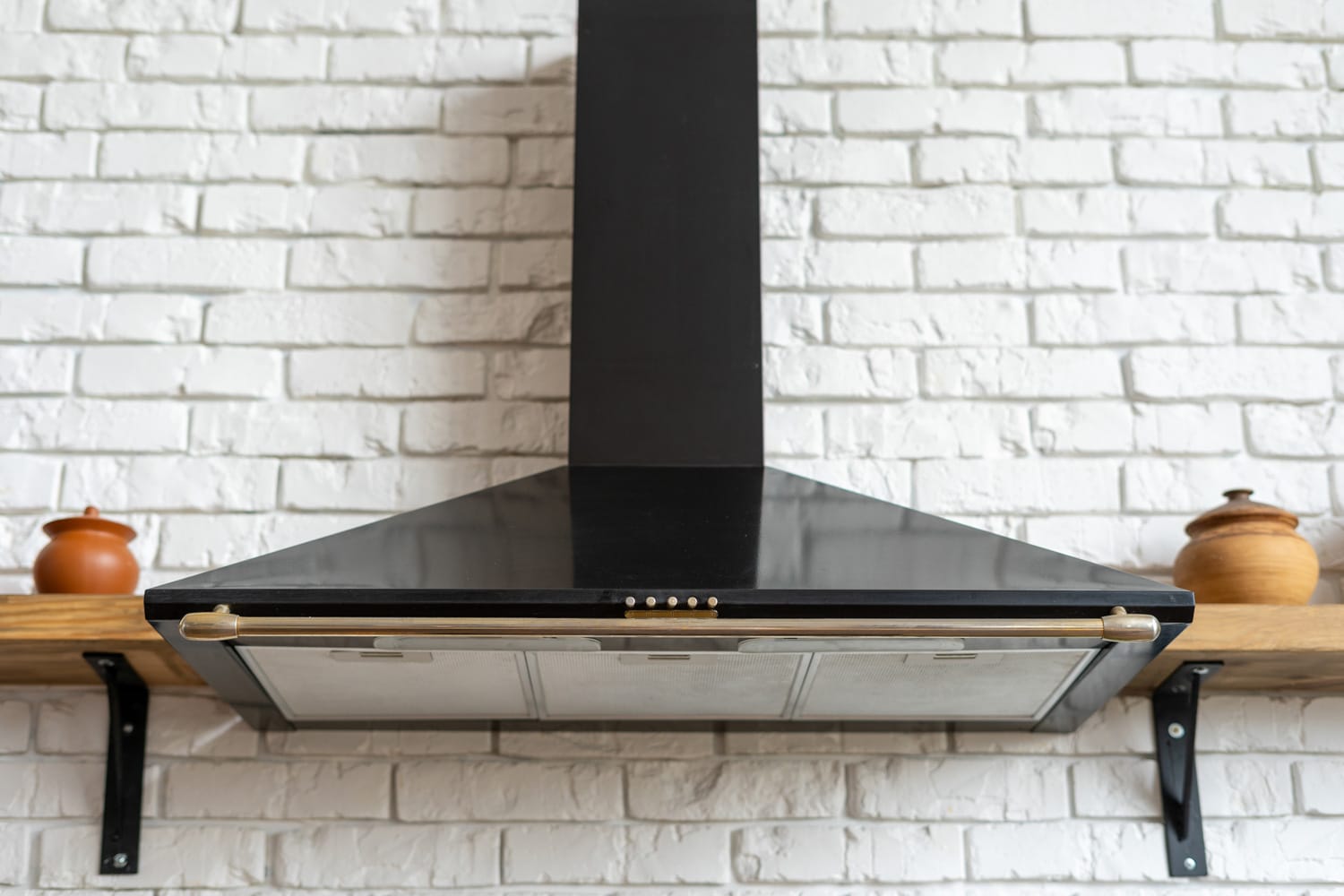
Why is my range hood rattling?
There are a number of reasons that cause rattling noises from your range hood, including a damaged filter, fan blades coming into contact with dirt and debris, and a loose or broken exhaust fan belt.
To fix this issue, you can try these steps:
- Replace the filter.
- Clean the fan blades of your range hood's blower.
- Call a professional to repair or replace your exhaust fan belt.
How can I make my range hood quieter?
Do you find your range hood too loud or noisy when you're using it? The good news is that there are ways to make it quieter, such as:
- Run your range hood at a lower setting as often as possible.
- Remove dirt and debris from the appliance.
- Tighten the fan or replace the fan blades.
- Clean the filter regularly.
- Check to see if the grease filter panels are loose and tighten them if they are.
- Choose an external blower or inline blower for your range hood.
- Increase the width and overall size of your ductwork.
- Buy a range hood silencer.
- Go for stainless steel baffle filters instead of mesh filters.
Check out these baffle grease filters on Amazon.
What is quiet for a range hood?
A range hood that has a sound level ranging between 4 to 5 sones or 40 dB to 65 dB at max speed is considered quiet. This means it will be much quieter at a low speed, so you can be sure that it runs without making irritatingly loud noises.
Keep in mind that CFM (cubic feet per minute) is also a significant factor in how much noise the range hood produces. CFM is used to measure the amount of power it takes for a range hood to remove smoke and odors from the kitchen.
A range hood with a high CFM will also have a high noise level. However, this doesn't mean you should go for the lowest CFM possible.
It's recommended that you get a range hood with at least 600 CFM to ensure quiet operation and maximum efficiency. 900 to 1,200 CFM is recommended for those who cook greasy food often. Most range hoods with this CFM have a noise level of 7 to 8 sones, which is fairly quiet.
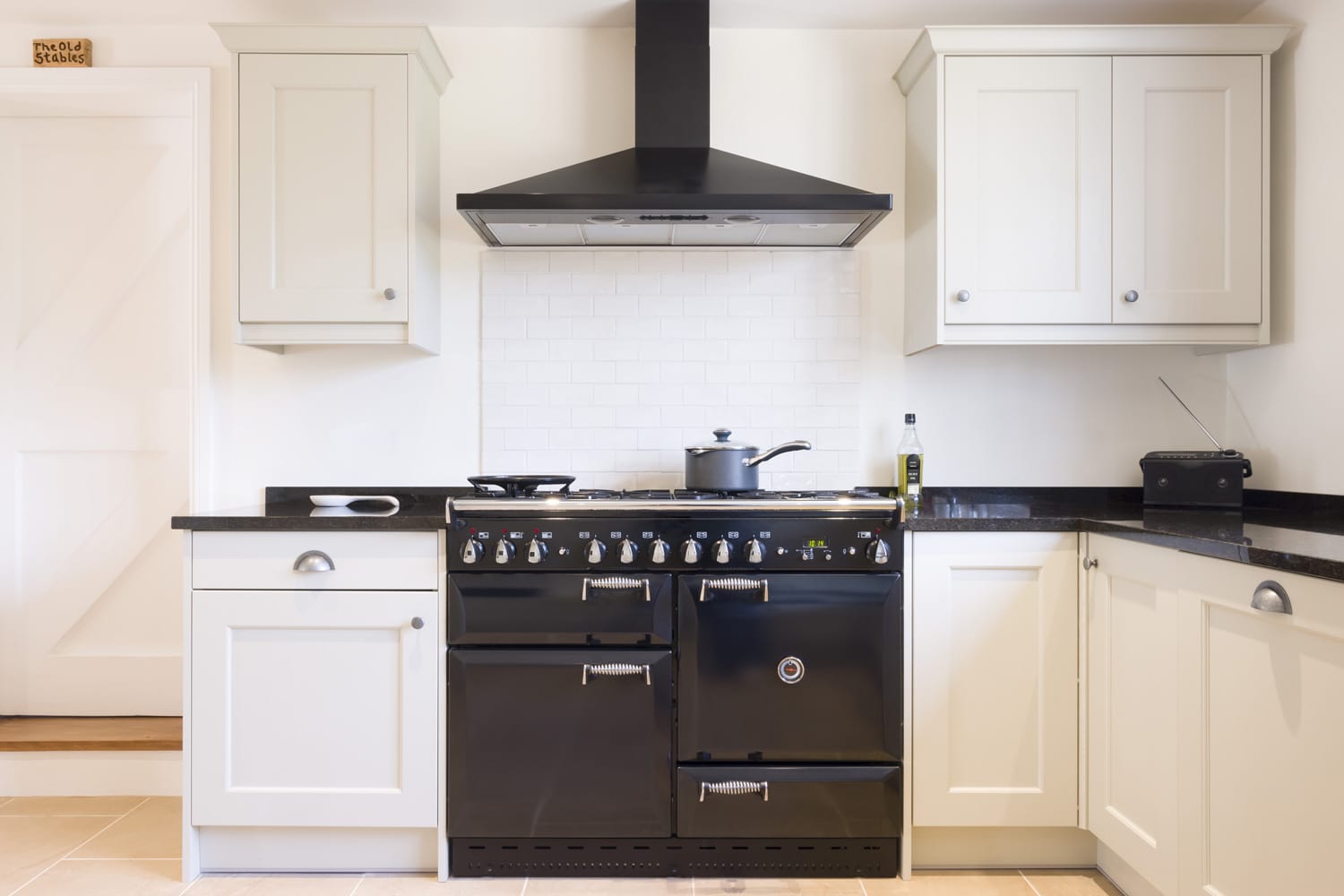
The Wrap-Up
Your range hood shouldn't be making noises when it's off. Make sure to inspect it well to figure out what the problem is. Feel free to use any of the solutions mentioned above to try and fix the issue.
If the problem persists, it may be best to consult a professional to find out what's going on with your range hood and fix any problems you may have overlooked.
Found this article helpful? We've got a few more posts you might like:
Does A Pizza Oven Need A Hood?
Slide In Vs. Freestanding Range – Which Should You Choose?



